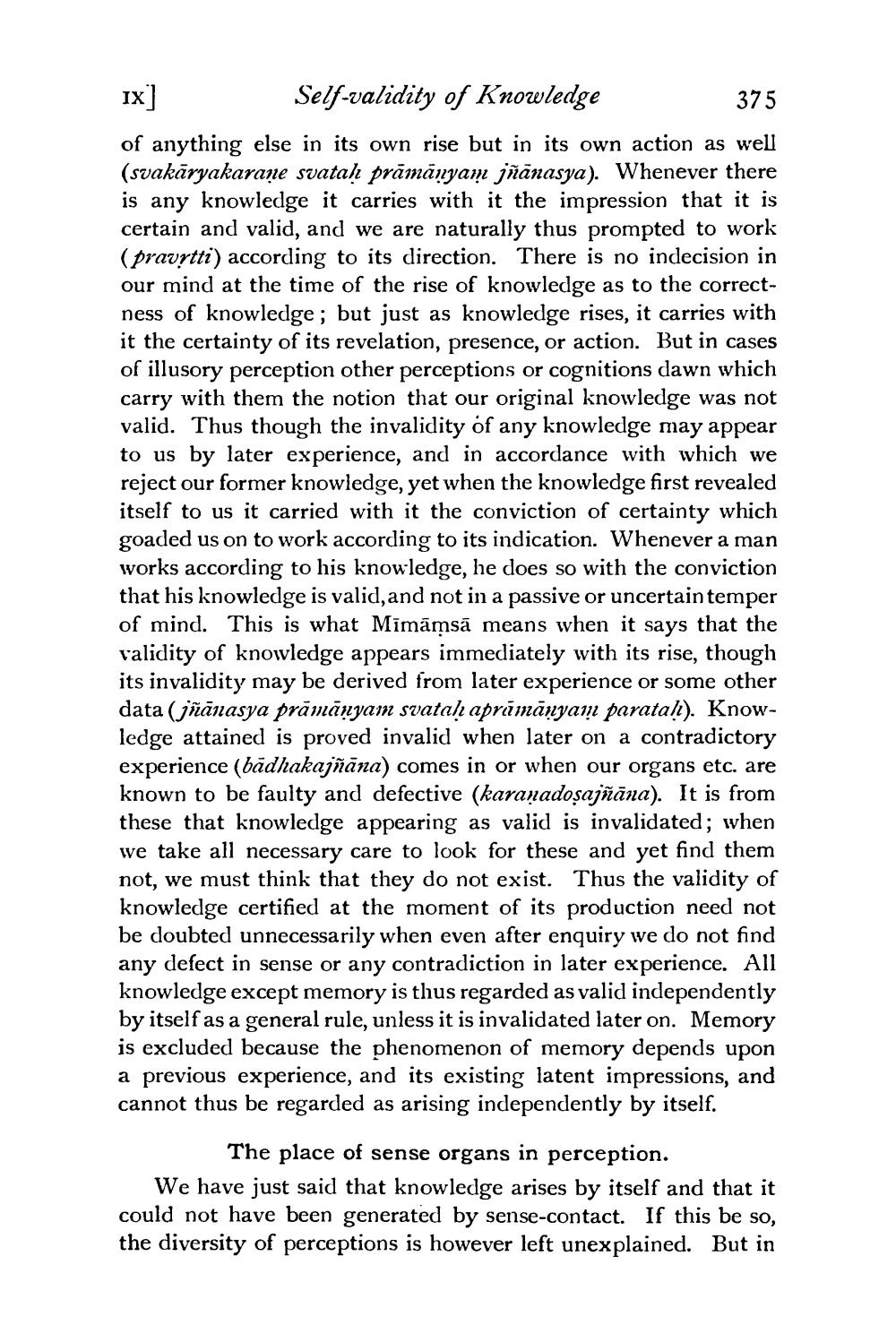________________
1x]
Self-validity of Knowledge
375 of anything else in its own rise but in its own action as well (svakāryakarane svatah prāmānyam jñānasya). Whenever there is any knowledge it carries with it the impression that it is certain and valid, and we are naturally thus prompted to work (pravrtti) according to its direction. There is no indecision in our mind at the time of the rise of knowledge as to the correct ness of knowledge ; but just as knowledge rises, it carries with it the certainty of its revelation, presence, or action. But in cases of illusory perception other perceptions or cognitions dawn which carry with them the notion that our original knowledge was not valid. Thus though the invalidity of any knowledge may appear to us by later experience, and in accordance with which we reject our former knowledge, yet when the knowledge first revealed itself to us it carried with it the conviction of certainty which goaded us on to work according to its indication. Whenever a man works according to his knowledge, he does so with the conviction that his knowledge is valid, and not in a passive or uncertain temper of mind. This is what Mimāmsā means when it says that the validity of knowledge appears immediately with its rise, though its invalidity may be derived from later experience or some other data (jñānasya prāmānyam svataḥ aprūmānyai paratal). Knowledge attained is proved invalid when later on a contradictory experience (bădhakajñāna) comes in or when our organs etc. are known to be faulty and defective (karaṇadosajñāna). It is from these that knowledge appearing as valid is invalidated; when we take all necessary care to look for these and yet find them not, we must think that they do not exist. Thus the validity of knowledge certified at the moment of its production need not be doubted unnecessarily when even after enquiry we do not find any defect in sense or any contradiction in later experience. All knowledge except memory is thus regarded as valid independently by itself as a general rule, unless it is invalidated later on. Memory is excluded because the phenomenon of memory depends upon a previous experience, and its existing latent impressions, and cannot thus be regarded as arising independently by itself.
The place of sense organs in perception. We have just said that knowledge arises by itself and that it could not have been generated by sense-contact. If this be so, the diversity of perceptions is however left unexplained. But in




